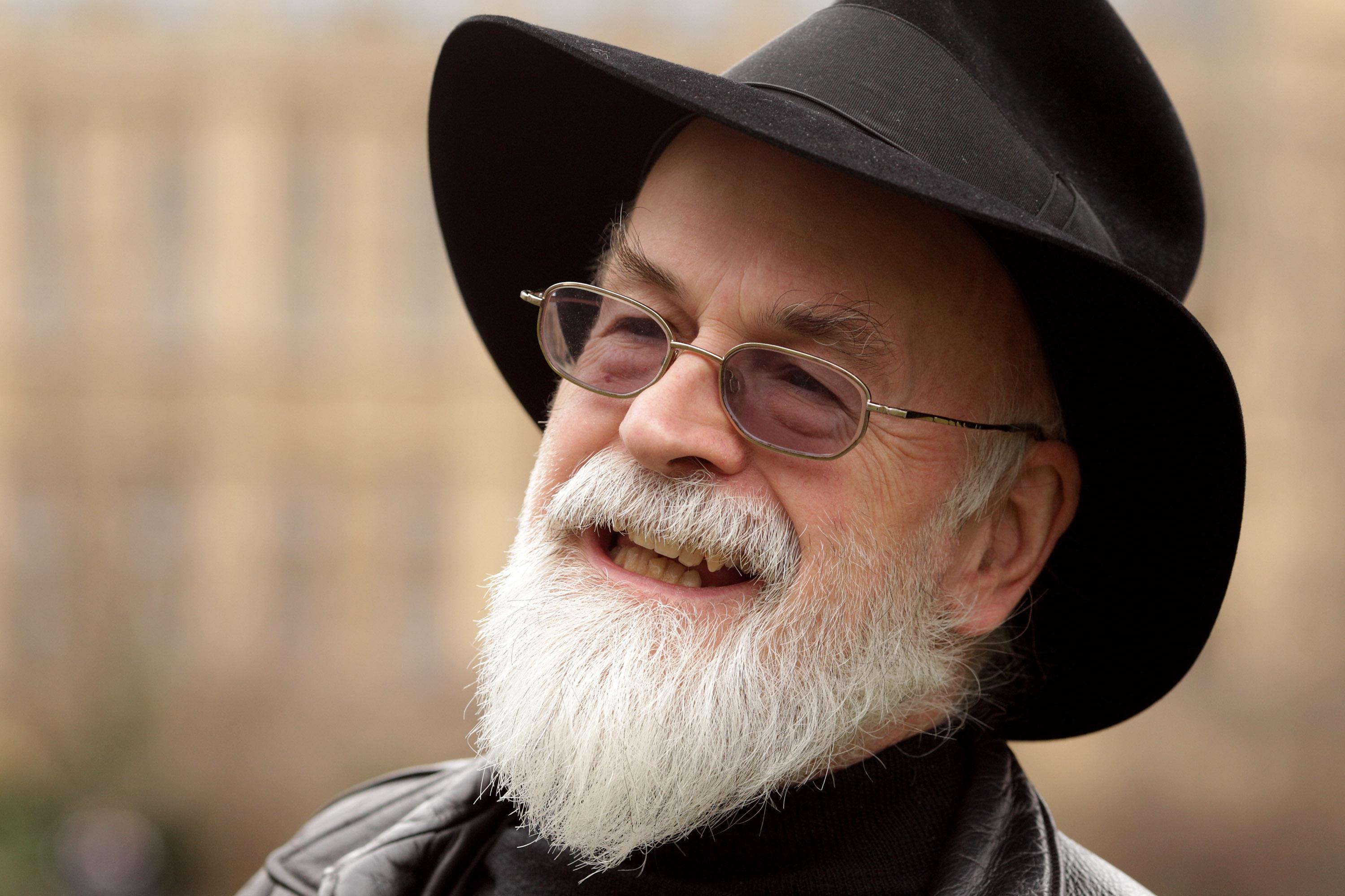“Death, too, has a sense of humor,” Terry Pratchett wrote in The Color of Magic. In his own turn, Pratchett had a sense of humor about death. Indeed, few authors have written about death with more good-natured bemusement than Pratchett, who died today at 66.
Long before Pratchett was diagnosed with early-onset Alzheimer’s in 2007, and longer still before he began to speak out in favor of physician-assisted suicide, the literal specter of death hung over his work. Death, or the personification of it, appears as a character in almost all of the 41 volumes of Discworld, Pratchett’s massive series of satirical fantasy novels, and as the protagonist in a handful of them.
When we first meet Pratchett’s vision of Death, he is in pursuit of Rincewind, a hapless failed magician who bumbles his way through The Color of Magic and several of its sequels. Though he exudes menace on his first appearance—he is, after all, here to collect our reluctant hero—Death remains surprisingly lighthearted, even after his target eludes him: “It would not be true to say that Death smiled,” Pratchett writes, “because in any case his features were perforce frozen in a calcareous grin. But He hummed a little tune, cheery as a plague pit …” His task may be grim, but his spirits never dampen.
Pratchett’s most devoted fans will tell you that Death grows still more personable as the series goes on. He becomes a comfortable presence, companionable in his constancy. Facing his own mortality, Pratchett showed that this growing familiarity extended beyond the borders of his fiction. In the note announcing his diagnosis, he reminded his readers that he was not yet dead. And yet, he wrote, “I will, of course, be dead at some future point, as will everybody else. For me, this maybe [sic] further off than you think—it’s too soon to tell.”
In Pratchett’s novels, Death is visible only to magicians—thanks, as Pratchett explains, to their sensitivity to “the eighth color, the pigment of the Imagination.” It is tempting to suggest that Pratchett understood death so well because he too was a sort of wizard, one whose work weaves an almost endless spell. To be sure, prodigious feats of the imagination color his work, each of his novels making visible things that would otherwise go unseen.
It might, however, be more appropriate to remember that Pratchett’s truest themes were ultimately mundane. The dehumanizing force of bureaucracy, from the postal service to the banking system, counted among his central concerns, and many of his best novels deal with the reform of such institutions. In Pratchett’s fiction, Death was also part of a bureaucracy of sorts, one that brooked no change. Giving that system a friendlier face may have been Pratchett’s greatest accomplishment. For Pratchett, death itself was a joke. But, as in the work of all great satirists, the monsters he mocked are no less real for our laughter.
